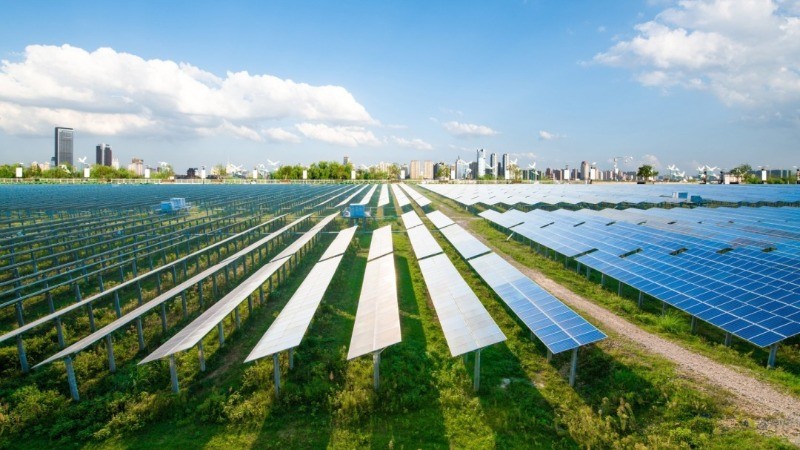
India has emerged as a front-runner in attracting green investment, outpacing China in recent months, thanks to its focused efforts on boosting domestic clean energy manufacturing. The country has drawn significant capital into its clean energy sector, positioning itself as a key player in the global transition to sustainability. This surge in funding, amounting to approximately $2.4 billion in just the third quarter, is more than four times the value of investments in China, according to BloombergNEF data.
A key factor behind India’s success is its aggressive push to expand local clean energy production and reduce its dependency on China. The country's prospects of becoming a global exporter of clean technologies further contribute to its appeal to investors. Raj Pai, founding partner at GEF Capital Partners, a climate-focused private equity firm, highlighted that the attraction of climate-related investments has never been higher.
India’s clean energy sector is benefiting from a series of favorable policy moves by Prime Minister Narendra Modi’s government. These initiatives are expected to drive rapid expansion in renewable energy capacity, making India one of the fastest-growing clean energy markets globally in the coming years. The International Energy Agency has projected that India will lead in renewable energy expansion among major economies through the rest of this decade.
The clean energy boom is also reflected in the Indian stock market, with several renewable and electric vehicle (EV) firms going public. Among the notable listings are solar panel maker Waaree Energies and EV scooter producer Ola Electric. NTPC Green Energy Ltd., a clean energy company, saw its shares rise more than 30% since their listing.
Investments in India’s clean energy sector are not limited to traditional sources. According to Abhinav Sinha, head of technology and telecoms at British International Investment Plc (BII), climate-related startups in India are receiving significant venture capital attention. BII, which has committed over $1 billion to climate-related projects in India by 2026, is one of the leading investors. Climate-related startups now account for about 25% of all seed-stage venture capital investments in India.
While India has made impressive strides, the overall funding for green technology still lags behind China. India has raised approximately $3.6 billion this year for clean energy projects, while China has attracted $5.6 billion, as reported by BloombergNEF. However, India’s clean technology market is forecast to grow rapidly, driven by innovation in sectors such as electric mobility, solar energy, and sustainable agriculture. The growing number of climate-focused startups and new investments reflects the potential for India to become a major hub for clean technology solutions.
Yet, challenges remain. India’s industrial sector, which accounts for about 22% of the nation’s total greenhouse gas emissions, requires substantial investments to meet net-zero targets by 2070. A recent study by researchers from the Indian Institute of Management (IIM) Lucknow and Ahmedabad University estimated that achieving net-zero emissions in India’s industrial sector will demand $1.7 trillion in investments. The study outlines strategies for decarbonising key industries like steel, cement, and textiles through energy efficiency, material recycling, and adoption of clean technologies such as carbon capture and hydrogen.
The research also emphasizes the need for international financial support and technology transfers to accelerate India’s green transition. Emerging technologies, including hydrogen-based systems and carbon capture, are still in development but must be scaled up to support sustainable industrial growth.
Overall, while India has made great strides in attracting green investments, its path to achieving net-zero emissions by 2070 will require massive funding, technological innovation, and supportive policies to balance economic growth with environmental sustainability.